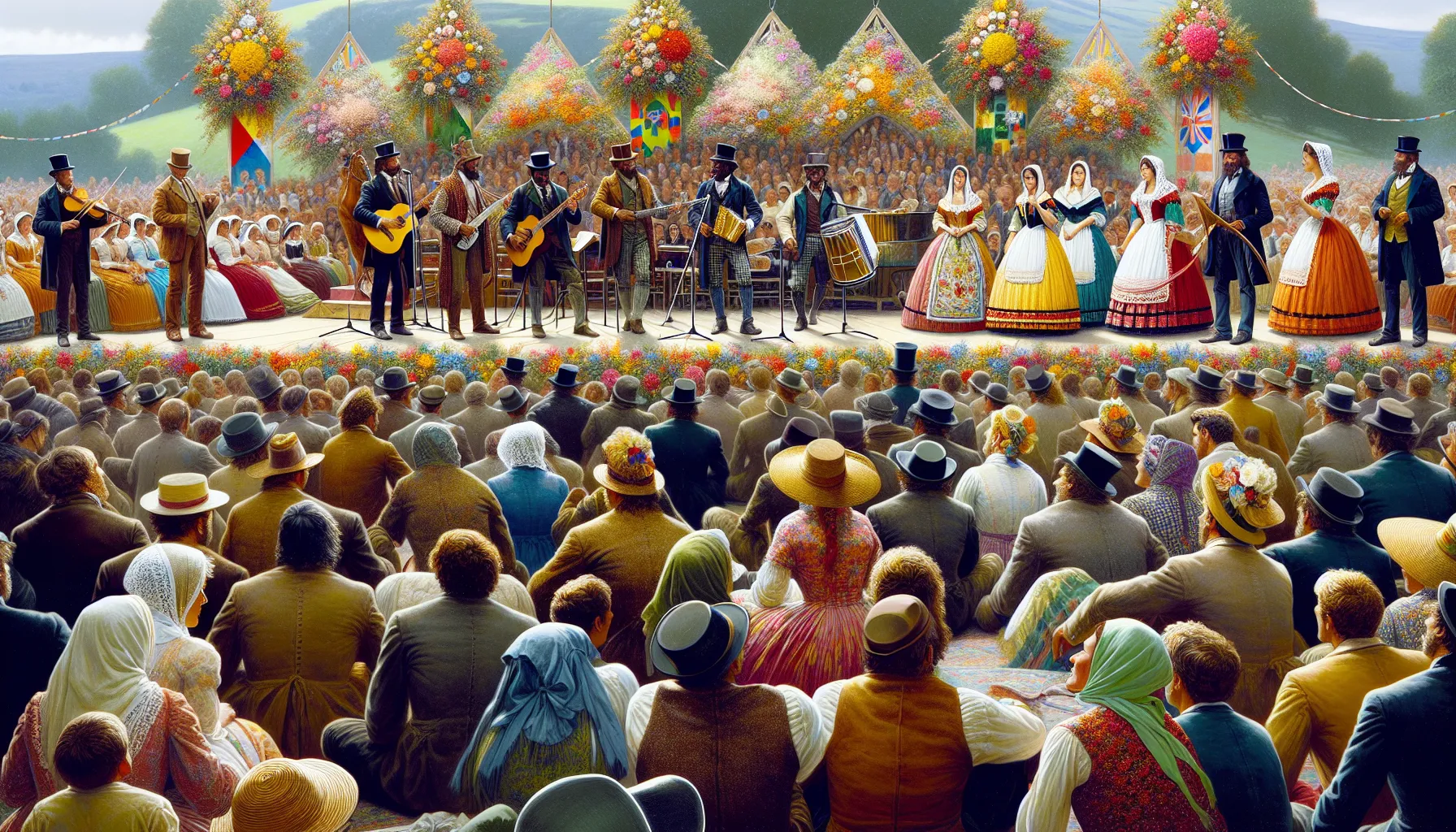What Is the Most Common Holiday in the UK? Discover the Nation’s Favourite Celebration
When it comes to holidays in the UK, certain traditions and celebrations stand out as favourites among locals and visitors alike. With a rich cultural history and a calendar filled with festivities, it’s no surprise that some holidays hold a special place in the hearts of millions.
You might wonder which holiday tops the list as the most common. Is it a festive season filled with joy and family gatherings, or perhaps a public holiday that brings the nation together? Understanding the UK’s most celebrated holiday offers a glimpse into the country’s unique traditions and what truly matters to its people.
Overview Of Popular Holidays In The UK
Various holidays hold cultural and social significance in the UK, with some standing out for their widespread observance. Among these, Christmas Day on 25 December is the most widely celebrated, bringing families together for traditions, decorations, and festive meals. Easter, observed in spring, includes traditions like egg hunts and church services, reflecting its Christian origins.
Another prominent holiday is New Year’s Day on 1 January, marked by parties and resolutions. Bonfire Night on 5 November, also known as Guy Fawkes Night, commemorates the failed Gunpowder Plot with fireworks and bonfires across the country. Public holidays like Easter Monday, May Day, and the August Bank Holiday provide opportunities for family outings or rest.
For patriotic celebrations, St George’s Day (23 April), St Andrew’s Day (30 November), and St David’s Day (1 March) honour the patron saints of England, Scotland, and Wales, respectively. In Northern Ireland, St Patrick’s Day on 17 March is celebrated with parades and cultural events. Remembrance Sunday in November honours military service members with ceremonies and poppy-wearing traditions.
These holidays reflect the deep cultural heritage and diversity of the UK, offering unique experiences across its nations.
What Is The Most Common Holiday In The UK?

Christmas Day, celebrated annually on 25 December, is the most common holiday in the UK. It unites families, communities, and diverse traditions, creating a festive atmosphere across the nation.
Exploring Its Significance
Christmas holds strong cultural and religious significance in the UK. As a Christian holiday, it commemorates the birth of Jesus Christ, but its celebrations also extend to secular traditions that embrace people from different beliefs. The season embodies themes of togetherness, generosity, and joy, which resonate deeply with UK residents.
Historical Background
The celebration of Christmas in the UK dates back to the early Middle Ages when Christianity became widespread. Traditions like caroling and gift-giving evolved over centuries, influenced by Pagan winter festivals such as Yule. Victorian-era practices like the Christmas tree, cards, and crackers further shaped modern celebrations, solidifying the holiday’s prominence.
How It Is Celebrated
Families typically gather on Christmas Day for festive meals, which often include roast turkey, stuffing, and mince pies. Homes are adorned with lights, wreaths, and Christmas trees. Traditions like opening advent calendars, exchanging gifts, and watching the Queen’s Christmas Speech or festive programmes are widespread. Carolling and attending church services also remain popular, blending historical and modern elements seamlessly.
Other Widely Celebrated Holidays

Beyond Christmas, several holidays in the UK hold cultural significance and enjoy widespread observance. These celebrations often highlight the nation’s historical diversity and regional traditions.
Cultural And Regional Variations
The UK’s holidays reflect distinct cultural and regional identities. In Scotland, Hogmanay marks the New Year with traditions like first-footing and torchlit processions. Northern Ireland celebrates the Twelfth of July with parades and festivities, commemorating King William III’s victory at the Battle of the Boyne.
In Wales, the Eisteddfod festival showcases Welsh culture, music, and literature, while St David’s Day on 1 March features parades and daffodil-themed decorations. England’s St George’s Day incorporates flags, parades, and church services, particularly in rural communities.
Variations often align with local customs, combining public celebrations with familial or religious practices. These differences capture the UK’s diverse heritage.
Factors Contributing To Holiday Popularity

Holidays in the UK are shaped by traditions, social interactions, and economic significance. Various elements influence their widespread appeal, blending cultural practices and modern influences.
Social And Family Traditions
Social and family traditions strongly impact a holiday’s popularity. In the UK, Christmas stands out due to its deep-rooted customs. Families typically gather for festive meals, gift exchanges, and decorating homes with trees and lights. Easter involves communal activities like egg hunts, emphasising family engagement.
Public events enhance celebrations; for instance, Bonfire Night features communal fireworks displays, while New Year’s Eve parties foster widespread participation. Celebrations like St David’s Day in Wales and Hogmanay in Scotland include parades and culturally-specific practices, fostering regional pride and community bonding. Such traditions perpetuate the significance of these holidays over generations, fostering widespread observance.
Economic And Tourism Impact
Economic and tourism factors also boost holiday popularity. Retail activity spikes during Christmas, generating billions in consumer spending on gifts and decorations. Easter and New Year’s contribute to revenue through holiday-specific items, entertainment, and dining.
Major holidays attract tourists: Edinburgh’s Hogmanay and Belfast’s Twelfth of July celebrations draw visitors seeking unique cultural experiences. Seasonal markets like those in London and Birmingham create tourism hotspots during winter festivals. These financial benefits ensure active promotion and consistent celebration, sustaining their prominence across the UK.
How The Most Common Holiday Reflects British Culture
Christmas, the most common holiday in the UK, embodies key aspects of British culture, combining historical, religious, and social elements. The holiday’s origins, rooted in Christian traditions, highlight the nation’s historical connection to Christianity, while its evolution showcases the integration of Pagan customs and Victorian innovations, like tree decorating and card exchanges.
Family-centric traditions define much of Christmas in the UK. Gathering for festive meals, exchanging gifts, and watching the Queen or King’s speech reflect the cultural emphasis on unity and togetherness. Traditional foods, including roast turkey, mince pies, and Christmas pudding, showcase culinary practices rooted in British heritage.
Seasonal activities like caroling and attending Christmas markets underline the value placed on community and shared experiences. These markets, often featuring crafts, food, and entertainment, also reflect Britain’s ability to embrace international influences, as German-style markets have become a seasonal staple in cities like Birmingham and Manchester.
The commercial aspect of Christmas highlights its economic and cultural importance. Retail activity peaks in December, contributing significantly to the economy, while advertising campaigns, like John Lewis’ Christmas ads, have become a modern tradition, reflecting the integration of consumer culture into holiday celebrations.
Christmas also represents inclusivity by blending religious practices with secular traditions. While many attend church services, others partake in activities like decorating homes or watching pantomime performances, ensuring the holiday resonates with diverse populations across the UK.
Conclusion
Understanding the most common holiday in the UK offers a glimpse into the nation’s rich cultural fabric and shared values. Holidays like Christmas not only reflect historical and religious roots but also highlight the importance of togetherness, tradition, and community spirit. Whether it’s festive family gatherings, public celebrations, or economic contributions, these occasions continue to shape the UK’s identity and bring people closer. Each holiday carries its own charm, ensuring there’s something for everyone to cherish and celebrate.
Frequently Asked Questions
What is the most celebrated holiday in the UK?
Christmas is the most celebrated holiday in the UK. Observed on 25 December, it holds cultural, religious, and social significance, bringing families together for traditions like festive meals, gift exchanges, and decorating.
Why is Christmas so popular in the UK?
Christmas combines religious significance, historical influences, and secular traditions such as caroling, festive markets, and gift-giving. It fosters togetherness, generosity, and joy, making it a cherished holiday.
Which UK holidays are linked to the seasons?
Holidays like Christmas and New Year’s Day are associated with winter, while Easter celebrates spring with egg hunts and religious services. Seasonal festivities often reflect nature’s changes.
What is Bonfire Night, and how is it celebrated?
Bonfire Night, on 5 November, commemorates the failed Gunpowder Plot. It’s celebrated with fireworks displays, bonfires, and regional events across the UK.
What are patriotic celebrations in the UK?
St George’s Day (England), St Andrew’s Day (Scotland), St David’s Day (Wales), and St Patrick’s Day (Northern Ireland) honour each region’s patron saints with festivals, parades, and traditions.
How does the UK blend tradition and modernity in holidays?
UK holidays like Christmas integrate historical customs such as caroling and tree decorating with modern influences, including advertising campaigns and shopping trends.
What is the economic impact of UK holidays?
Major holidays like Christmas and Easter boost retail activity, with seasonal markets and tourism generating significant revenue for local and national economies.
Which holiday draws the most tourists to the UK?
Christmas and New Year celebrations, including events like Edinburgh’s Hogmanay, attract large numbers of tourists due to their unique cultural traditions and festive atmospheres.
How do British holiday meals reflect culture?
Traditional holiday meals, like roast turkey at Christmas and hot cross buns at Easter, showcase Britain’s culinary heritage and its emphasis on communal dining.
What makes British holidays unique?
British holidays combine historical, religious, and social elements, offering a blend of local traditions and modern influences that foster community bonding and celebrate cultural diversity.